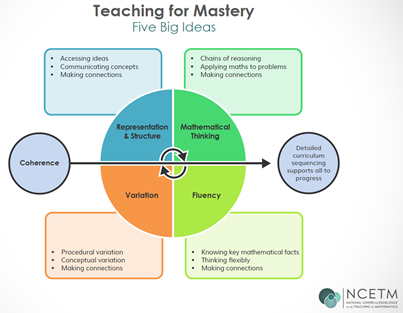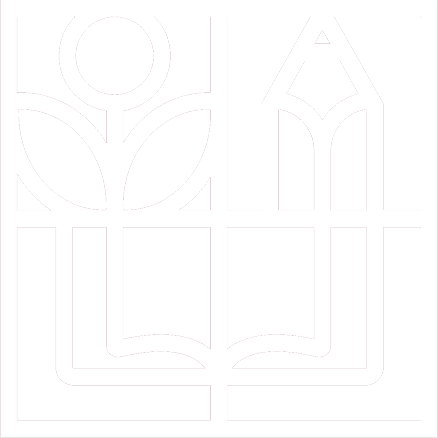Maths


“Grow, shine and succeed in maths through making sense of maths, demonstrating understanding and thinking mathematically”
Intent
We believe that all pupils, regardless of background, should enjoy mathematics and succeed in the subject, becoming competent and confident mathematicians. We aim for our pupils to acquire a deep, long-term and secure understanding of mathematics. We are committed to developing pupils’ curiosity about the subject, enabling them to make meaningful and rich links to real life contexts that will be relevant and useful in the world of work.
At Silver End Academy, we believe that pupils should:
- Make sense of mathematics and demonstrate understanding through exposure to different representations using the principles of CPA – Concrete, Pictorial, Abstract:
- Concrete – the doing: children use manipulatives (counters, base-10 equipment) to represent the concept they are being taught. This ‘hands on’ component using real objects is the foundation for conceptual understanding
- Pictorial – the seeing: children can use pictures and models to represent the concrete manipulatives
- Abstract – the symbolic: this is the concept in the abstract form which is more readily understood once children have explored the concrete and pictorial. Pupils’ are now capable of representing problems by using mathematical notation. This is the most formal and efficient stage of mathematical understanding. Abstract representations can simply be an efficient way of recording the maths, without being the actual maths.
- Think mathematically and build resilience to the challenges they face within and across the subject by having the opportunity to:
- Explore, wonder, question and conjecture- feeling safe to make mistakes and learn from these through exploring their own understanding and application of maths
- Compare, classify, sort- using clear verbal reasoning as to how or why they have classified their objects- again with the confidence to explain and discuss their thoughts with their peers and their teachers
- Experiment, play with possibilities, vary an aspect and see what happens- similar to how children learn to play with language in literacy- explore what happens when the changes are made, are there patterns that appear- if so what is happening and from this can they predict what will happen as the sequences continue?
- Make theories and predictions and act purposefully to see what happens- making generalisations and exploring them both independently, with peers and with adults alike.
It is important that we support all pupils in developing their mathematical thinking, both in order to improve the way in which they learn, as well as the learning itself. Good questioning can be used to develop pupils’ ability to compare, modify and generalise, all building a deeper understanding of mathematics.
Implementation
The content and principles underpinning the Mathematics curriculum at Silver End Academy reflect those found in high-performing education systems internationally, particularly those of east and south-east Asian countries. These principles convey how our curriculum is implemented.
At Silver End Academy, we use The National Centre for Excellence in the teaching of Mathematics (NCETM) as a basis of our maths lesson to achieve the aims set out by the National Curriculum.
At the heart of this programme is the idea that all children can achieve and be successful mathematicians with the right growth mind-set.
Mastering Number
We are lucky at Silver End Academy to be part of the NCETM Mastering Number programme for EYFS, Key Stage 1 and Year 3.
The Mastering Number Programme in EYFS is their main curriculum for Number.
This programme focussing on ensuring the children have a good solid knowledge of the number system by the time they leave Key Stage 1. In Year 3 it focuses on securing additive facts beyond Key Stage 1.
Our pupils:
- are open-minded and like to think differently
- will come up with a variety of methods or ideas to solving a problem
- are resilient and never give up even if our methods are not the most efficient
- always enjoy making mistakes and learning from them
- are confident, willing to take risks and are unafraid of failure
- are happy to share and discuss our ideas with others, learning from each other
- are eager, interested and inquisitive, asking lots of questions
Impact
At Silver End Academy, we ensure that pupils are supported in developing their collaborative and independent skills through a supportive ethos and culture. All pupils are encouraged to develop a growth-mind-set through the experience of challenge and success. Teachers proactively promote a ‘can-do’ attitude to mathematics to make sure that children, teachers and parents really believe they can do maths!
Assessment is integrated throughout our lessons and unit structure. This helps teachers make regular assessments of children’s understanding to inform their teaching and measure progress. For children, assessment is a chance for them to review key concepts and reflect on their learning using maths journals.
Opportunities for assessment include:
Formative assessment within every lesson
Teacher notes that help identify and address pupils’ misconceptions
Differentiation is achieved, not through offering different content, but through paying attention to the levels of support and challenge needed to allow every student to fully grasp the concepts and ideas being studied.
This ensures that all students gain sufficiently deep and secure understanding of the mathematics to form the foundation of future learning before moving to the next part of the curriculum sequence. This prevents students from being left behind and others from skimming and surface learning.
Other opportunities within Mathematics
Children have access to:
Times Table Rock Stars- each child from Year 2 has a log in to practice their times tables
Num-Bots- Children in KS1 have a log in and can create their own robot to go on a Maths Adventure
Fluent in 5- A quick paced 5 question mental arithmetic activity completed at the start of each Maths lessons
Fast Times Tables- These are times table grids that the children complete as Early Morning Work or within their Maths lessons

I do- Teacher Led
- Speaking out loud to process the question
- Look & listen
- Applying Key vocabulary
- Modelling the strategies and how to answer the question
- Going through the process step by step
- Class Teacher demonstrates how to answer the question- thinking out loud
- Introducing strategies to use
- Using concrete manipulatives
- Using visual representations
We do- Children and Teacher together
- Offering strategies that can be used to answer the questions
- A verbal activity
- Posing questions
- Making purposeful mistakes
- Children and class teacher work together to complete a questions/ task-> Teacher poses questions and gives prompts
- Class Teacher will complete half of a question and then as a class they finish the question through discussions
- Children may work in groups
- Children may work together as a class
- Using partner talk
- Using manipulatives and resources
You do- practice
- Children are expected to self-mark (Key Stage 2)
- Children will look back at models for support
- Children will get their own resources (Mainly Key Stage 2)
- Children will ask each other before asking the teacher
- Children choosing their own challenge
- Teachers use the practice time to check the children’s independent understanding
- This is flexible-> If the children become unsure they may return to a ‘we do’ group with the class teacher
